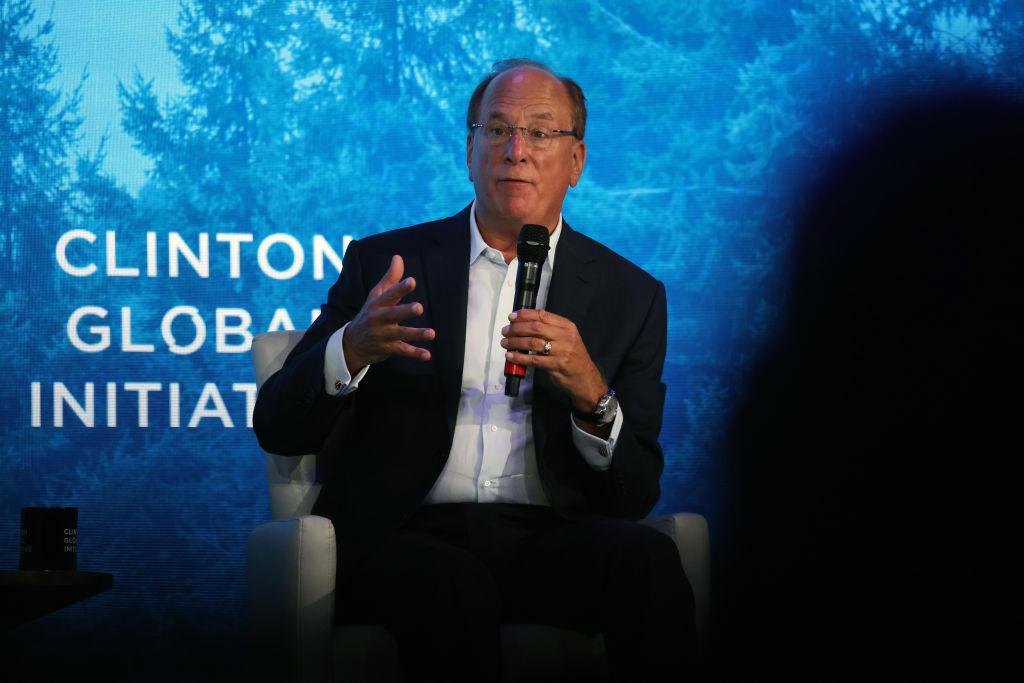Commentary

BlackRock CEO Larry Fink speaks at a forum during the opening of the Clinton Global Initiative (CGI), a meeting of international leaders in New York City on Sept. 19, 2022. Spencer Platt/Getty Images
James P. Pinkerton, a former White House domestic policy aide to Presidents Ronald Reagan and George H.W. Bush, has been a longtime columnist, contributor, and editor at various medias, including Fox News, The American Conservative, The Washington Post, and The Wall Street Journal. He also co-chaired a major business advocacy coalition, the RATE Coalition, and is the author of “What Comes Next: The End of Big Government—and the New Paradigm Ahead” (1995).


